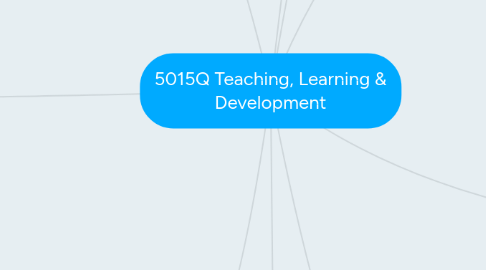
1. Week 1, Planning for the upcoming school year
1.1. The 9 topics of Educational Psychology
1.1.1. This was a very informative chapter, and a good place to get started on Educational Psychology. Terms such as behaviourism, and constructivism helped setup the major themes in this course.
1.2. 1) Learning & Congnition
1.3. 2) Development
1.4. 3) Social and Cultural Influences
1.5. 4) Motivation
1.6. 5) Behaviour and classroom management
1.7. 6) Individual differences
1.8. 7) Assessment and evaluation
1.9. 8) Teaching & Instruction
1.10. 9) Psychological Foundations of Curricula
1.11. Ted Talk: Stop Stealing Dreams
2. Week 2, Considering child and adolescent development
2.1. Adora sort of turned the tables on adults, challenging them to be more accepting of kids and their ideas.
2.1.1. Scaffolding
2.1.2. Temperment
2.2. Theorists who have influenced Educational Psychology
2.2.1. Piaget
2.2.2. Vygotsky
2.2.3. Chomsky
2.2.4. Erikson
2.2.5. Kohlberg
2.2.6. Bronfenbrenner
2.3. Cognitive Development
2.4. Differentiated learning, and making the activities more fun for students.
3. Week 3, Establishing a positive learning environment.
3.1. Classroom Management is big league important
3.1.1. "The absence of good behavior is a performance-deficit problem, not a skill deficit problem"
3.1.2. Give the students a say in how their classroom is run, let them be involved in creating and enforcing the rules so they are responsible for their own learning.
3.1.2.1. "Rule 1: All of our rules will be fair and reasonable, and they will be democratically decided upon. They will be posted on the wall for everyone to see, and they will be enforced."
3.2. I'll try and differentiate my teaching as much as possible, and hopefully that will create a great learning environment for students.
4. Great video on how to setup a SOLE classroom!
5. Week 4, Making instructional decisons
5.1. Universal Instructional Design, Explanation & Demonstration, Academic and Cognitive Skill acquisition.
5.1.1. Every lesson plan should have assessment in mind.
5.2. Assessment for diagnosis should come before insruction.
5.2.1. Read the students Ontario Student Records
5.2.2. Talk with their previous teachers
5.3. Bloom's taxonomy
5.3.1. What will student's learn in each lesson?
5.4. Meaningful Learning Stems from effective teaching
6. Week 5, Assessing student progress
6.1. Selected Response Questions
6.1.1. True/False questions
6.1.2. Matching questions
6.1.3. Multiple-choice questions
6.2. Constructed Response Questions
6.2.1. Short-Answer questions
6.2.2. Restricted-essay and essay questions
6.3. Take 1000 and add 40 to it. Now add another 1000 to it. Now add 30. And another 1000. Now add 20. Now add another 1000. Now add 10. Answer: Did you get 5000? Way to go. Most of us did, but that’s wrong. The answer is 4100. Believe it: use a calculator.
6.3.1. This question destroyed my brain for a few minutes, but it was a great way to get you to approach questions from a different angle.
7. Week 6, Indivudual differences
7.1. "Intelligence is the ability to adapt"
7.2. Inclusion
7.2.1. Students who are in special education must be included with the rest of the class to make it more equitable, and inclusive.
7.2.1.1. Special education teaching isn't all that different from regular teaching, it;s just more exemplary, and designed to accommodate that student.
7.3. Making the classroom friendly for students who require some extra help or a different approach is one of my top priorities.
7.4. Intelligences
7.4.1. analytical/componential intelligence
7.4.2. creative/experiential intelligence
7.4.3. crystallized intelligence
7.4.4. differentiated learning
7.4.5. fluid intelligence
8. Week 7, Socio-cultural considerations
8.1. Some students struggle to be a part of the classroom if they are part of the othered group.
8.1.1. race
8.1.2. class
8.1.3. gender
8.1.4. culture
8.1.5. language
8.1.6. educational achievement
8.1.7. Education can be the equalizer if implmented properly.
8.1.7.1. prejudice
8.1.7.2. stereotype threat
8.1.7.3. socio-economic status
8.2. The AIRPLANE Game – Who would you sit beside? Why? You only get one choice! A woman from Iran A person with a bald head and multiple piercings A basketball player A refugee An ex-high security prisoner…jailed for over 26 years
8.2.1. Personally, I don't really talk to people on airplanes, but it's a pretty thought provoking activity.
8.3. We have to convince students who are struggling that doing well in school will directly benefit them.
9. Week 8, Standardized achievement tests
9.1. Standardized tests are an accepted norm of education, business, and much or the world.
9.1.1. Can lead to great success like in the case of Korea, or the lack of them can also breed success such as in Denmark.
9.2. More of a way to measure how effective education is, rather than student success in many cases, however not all of the time.
9.3. Teaching for the test isn't the greatest strategy
9.3.1. Review, and refresh
9.3.2. If the curriculum is being followed and the students understand the material, standardized tests are not worth stressing over.
